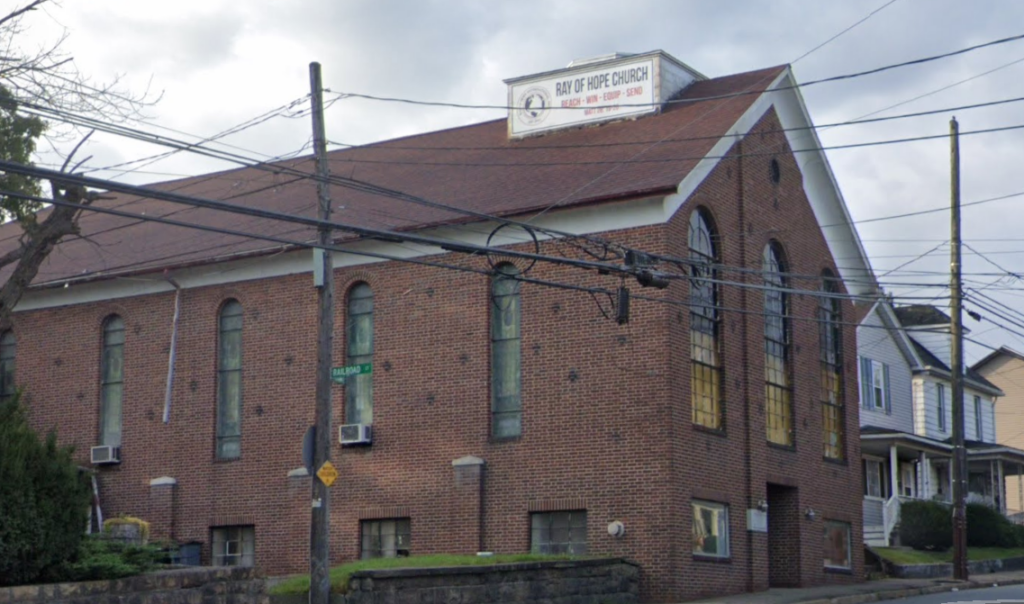
Lackawanna County detectives have filed charges against a 22-year-old Scranton man accused of sexually abusing a mentally disabled woman while working as a church van driver, according to The Time-Tribune.
The allegations center on Tara Glan, who investigators say engaged in illegal sexual activity with the woman for approximately two years, starting when she was 16. The abuse allegedly occurred between July 2021 and July 2023 while Glan worked for the Ray of Hope Church located at 258 N Main St, Taylor, PA 18517. In addition to driving the church van, Glan also organized youth group activities at the church.
Authorities began investigating the case in April after receiving cyber tips from the National Center for Missing and Exploited Children. According to the criminal complaint, the woman’s intellectual disability, documented in her Independent Education Program (IEP), rendered her legally incapable of providing consent.
The woman, now 19, told investigators that Glan repeatedly assaulted her in the church van and at the church itself. She recalled one incident when Glan pulled the van over during a ride home and told her to get in the backseat. After she refused his advances, Glan allegedly forced her to engage in sexual acts despite her protests.
Another assault reportedly occurred on New Year’s Eve at the church. The woman said Glan coerced her into staying behind under the pretext of helping clean the Sunday School classroom. She described Glan forcing himself on her there, stopping only when she expressed pain.
The woman estimated Glan assaulted her about eight times, often during rides home in the church van after other passengers had been dropped off. She revealed that she had stopped wanting to attend youth group meetings but was compelled to go by her mother.
When interviewed by investigators on May 8 at Lackawanna County Prison, Glan admitted to having sexual relations with the woman at the church and in the church van. He offered a troubling rationale for his actions, stating, “That’s the only girl I ever met with that would actually do something sexually wise with me.”
Glan now faces multiple felony charges, including rape of a disabled person, forcing a disabled person to perform oral sex, and aggravated assault. A preliminary hearing is set for May 21 before District Judge Paul Ware.
The case has sparked widespread concern and outrage, particularly given Glan’s position of trust within the church.

In the aftermath of allegations against a Scranton church van driver accused of sexually abusing a mentally disabled teen over two years, many are left wondering what legal pathways are available to survivors. Pennsylvania sexual abuse attorney Guy D’Andrea spoke about the options victims have to seek accountability and how institutions like churches may bear responsibility when such incidents occur under their watch. His perspective sheds light on the legal recourse survivors can take and the broader implications for preventing future abuse.
Darla Medina (Editor): Mr. Morgan, this case involving a church van driver accused of sexually abusing a mentally disabled teen has raised many questions. What legal options are available to survivors of such abuse in Pennsylvania?
Max Morgan (Attorney): Survivors of sexual abuse in Pennsylvania have several legal avenues. First, they can participate in the criminal case as a victim, working with prosecutors to ensure justice is served. In addition to the criminal proceedings, survivors also have the right to file a civil lawsuit against the perpetrator to seek damages for the harm they’ve endured.
Medina: What about the role of the church in this case? Can institutions like churches be held accountable?
Morgan: Absolutely. Institutions that employ or associate with individuals accused of abuse can face civil liability if it’s proven they were negligent in hiring, supervision, or failing to take action when warning signs were present. This is particularly relevant in cases where the abuse occurred during official duties, like driving a church van.
Medina: For survivors who may be hesitant to come forward, what would you say to them?
Morgan: I understand how difficult it can be to speak out, but survivors should know they aren’t alone. There are legal protections in place to ensure their voices are heard, and they have the right to pursue justice and compensation for their suffering. Taking that step can also help prevent future harm by holding individuals and institutions accountable.
If your loved one has been harmed by a church van driver or in a similar position of trust, you don’t have to face this alone. Understanding your legal options can be the first step toward justice and healing. Contact us today for a free consultation to discuss how we can help you hold individuals and institutions accountable. Your family deserves support, and we’re here to provide it.
Source
 info@legalherald.com
info@legalherald.com